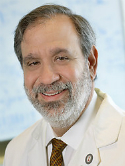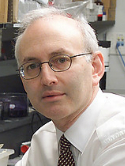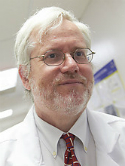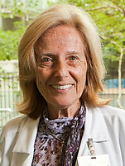| Abstract: |
The objective of this study was to identify factors associated with poor mobilization of peripheral blood progenitor cells (PBPCs) or delayed platelet engraftment after high-dose therapy and autologous stem cell transplantation in patients with lymphoma. Fifty-eight patients with Hodgkin's disease or non-Hodgkin's lymphoma underwent PBPC transplantation as the 'best available therapy' at Memorial Sloan-Kettering Cancer Center (New York, NY) between 1993 and 1995. PBPCs were mobilized with either granulocyte colony- stimulating factor (G-CSF) alone (n = 19) or G-CSF following combination chemotherapy (n = 39). Forty-eight of these patients underwent a PBPC transplant, receiving a conditioning regimen containing cyclophosphamide, etoposide, and either total body irradiation, total lymphoid irradiation, or carmustine. A median number of 4.6 x 106 CD34+ cells/kg were obtained with a median of three leukapheresis procedures. Mobilization of PBPCs using chemotherapy plus G-CSF was superior to G-CSF alone (6.7 x 106 versus 1.5 x 106 CD34+ cells/kg; P = 0.0002). Poorer mobilization of progenitor cells was observed in patients who had previously received stem cell-toxic chemotherapy, including (a) nitrogen mustard, procarbazine, melphalan, carmustine or >7.5 g of cytarabine chemotherapy premobilization (2.0 x 106 versus 6.0 x 106 CD34+ cells/kg; P = 0.005), or (b) ≤11 cycles of any previous chemotherapy (2.6 x 106 versus 6.7 x 106 CD34+ cells/kg; P = 0.02). Platelet recovery to >20,000/μl was delayed in patients who received <2.0 x 106 CD34+ cells (median, 13 versus 22 days; P = 0.06). Patients who received ≤11 cycles of chemotherapy prior to PBPC mobilization tended to have delayed platelet recovery to > 20,000/μl and to require more platelet transfusions than less extensively pretreated patients (median, 13.5 versus 23.5 days; P = 0.15; median number of platelet transfusion episodes, 13 versus 9; P = 0.17). These data suggest that current strategies to mobilize PBPCs may be suboptimal in patients who have received either stem cell-toxic chemotherapy or ≤11 cycles of chemotherapy prior to PBPC mobilization. Alternative approaches, such as ex vivo expansion or the use of other growth factors in addition to G-CSF, may improve mobilization of progenitor cells for PBPC transplantation. |









